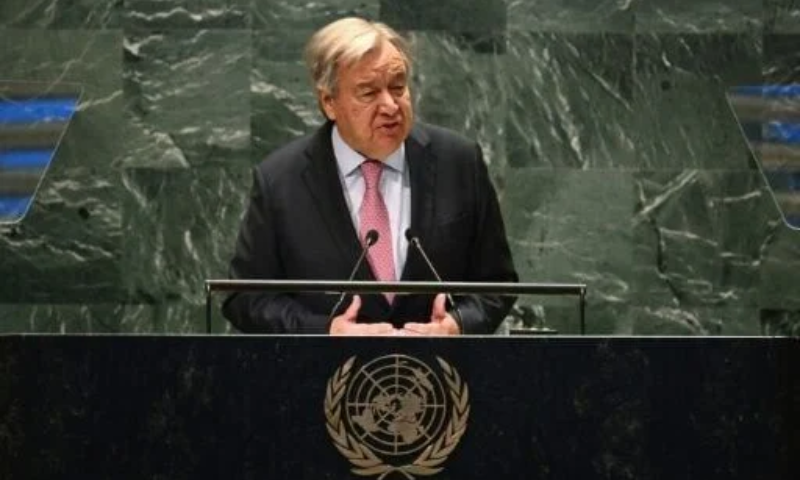UNITED NATIONS: The United Nations adopted a “Pact for the Future” on Sunday, aiming to tackle pressing 21st-century challenges, including conflict, climate change, and human rights, despite facing last-minute objections from a coalition of countries led by Russia.
The pact was approved during the “Summit of the Future,” which UN Secretary-General Antonio Guterres described as a “once-in-a-generation opportunity” to reshape international cooperation.
As an opening event for the upcoming high-level week of the UN General Assembly, which begins Tuesday, the summit brought together several heads of state and government for the signing ceremony.
The leaders pledged to strengthen the multilateral system to adapt to a changing world and to safeguard the needs and interests of both current and future generations amid “persistent crises.”
The pact encompasses 56 specific actions, calling for enhanced commitments to multilateralism, adherence to the UN Charter, and the reinforcement of peacekeeping efforts. It also emphasizes the need for reforms in international financial institutions and the UN Security Council, alongside renewed commitments to combat climate change, promote disarmament, and regulate the development of artificial intelligence.
However, the adoption process faced a brief interruption when Russian Deputy Foreign Minister Sergey Vershinin proposed an amendment highlighting the “principle of non-interference in the internal affairs of states.” His proposal was supported by allies including Belarus, North Korea, Iran, Nicaragua, and Syria, but it was rejected in a motion to take no action.
During negotiations, Guterres called for “vision” and “courage,” urging nations to adopt “maximum ambition” to bolster international institutions that are currently struggling to respond to global threats effectively.
Nevertheless, the resulting text was met with mixed reactions. Richard Gowan of the International Crisis Group remarked that while there are some positive elements, the document falls short of the transformative ambitions Guterres had initially envisioned. Diplomats echoed similar sentiments, labeling the text as “lukewarm,” “the lowest common denominator,” and “disappointing.”
READ ALSO: Israel Kills Top Hezbollah Leader in Beirut Strike
One major point of contention was the issue of climate change, with initial references to transitioning away from fossil fuels having been removed from earlier drafts. These references were later reinserted following extensive discussions.
Despite the criticisms, some diplomats maintained that the pact represents a crucial opportunity to reaffirm global commitments to multilateralism, especially in the current challenging geopolitical landscape.
There is a particular urgency for developing countries, which have advocated for concrete commitments to reform international financial institutions to facilitate access to financing, particularly in light of climate-related challenges.
Human Rights Watch acknowledged the pact’s important commitments to economic justice and the centrality of human rights. However, Louis Charbonneau, HRW’s UN director, emphasized the need for world leaders to take actionable steps to uphold these rights.
Notably, while the pact and its annexes—including a Global Digital Compact and a Declaration on Future Generations—are non-binding, concerns remain regarding their implementation. Many principles outlined in the document, such as protecting civilians in conflict, are often violated in practice.
Guterres urged on Saturday, “Our next task is to breathe life into them, to turn words into action.”























